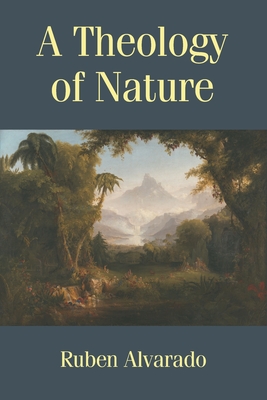A Theology of Nature

A Theology of Nature
But how much of this is derived from Scripture, and how much from romantic secular philosophy? To what extent does the Bible speak of man as steward of the planet? And to what extent does it validate the view of nature as unspoiled perfection marred by humankind's intervention?
This view of nature is based on a philosophical presupposition: the balance of nature. Nature is considered to be poised in a delicate and fragile equilibrium, the slightest disturbance of which will have the direst consequences. But how valid is this presupposition?
It is of the utmost consequence that we recognize this presumption. It is what motivates the approach to the environmental crises that we confront. Climate change is one of the major themes viewed - indeed, prejudged - through the spectacles of nature in balance. The Amazon rain forest is another. Global megafire, another allegedly unprecedented phenomenon, is a third. All of these are here weighed in the balance.
This book adopts a critical stance to received notions. Its method for doing so, sad to say, is fairly unique in our day and age. For it uses both Scripture and modern science to derive a view of nature. And these two are brought into fruitful cooperation, engendering a synergy that once was the hallmark of the Christian scientific endeavor.
What does the science of ecology have to tell us about nature in balance? What does climate history tell us about climate change? What is the age of the earth, and how is it important to these questions? What is the role of carbon dioxide? How important is biodiversity? How serious is the threat of mass extinction?
What does the apostle Paul say about the original condition of the creation? What was the Garden of Eden really, and what role did Adam play in it? What kind of steward was he, and how did this change after the fall? What does the tower of Babel tell us about stewardship? What is the place of globalization versus nationhood in carrying out the divine command to exercise dominion? What is the role of the church? What is natural law?
And the greatest question of all: why did G
PRP: 140.45 Lei
Acesta este Pretul Recomandat de Producator. Pretul de vanzare al produsului este afisat mai jos.
126.40Lei
126.40Lei
140.45 LeiLivrare in 2-4 saptamani
Descrierea produsului
But how much of this is derived from Scripture, and how much from romantic secular philosophy? To what extent does the Bible speak of man as steward of the planet? And to what extent does it validate the view of nature as unspoiled perfection marred by humankind's intervention?
This view of nature is based on a philosophical presupposition: the balance of nature. Nature is considered to be poised in a delicate and fragile equilibrium, the slightest disturbance of which will have the direst consequences. But how valid is this presupposition?
It is of the utmost consequence that we recognize this presumption. It is what motivates the approach to the environmental crises that we confront. Climate change is one of the major themes viewed - indeed, prejudged - through the spectacles of nature in balance. The Amazon rain forest is another. Global megafire, another allegedly unprecedented phenomenon, is a third. All of these are here weighed in the balance.
This book adopts a critical stance to received notions. Its method for doing so, sad to say, is fairly unique in our day and age. For it uses both Scripture and modern science to derive a view of nature. And these two are brought into fruitful cooperation, engendering a synergy that once was the hallmark of the Christian scientific endeavor.
What does the science of ecology have to tell us about nature in balance? What does climate history tell us about climate change? What is the age of the earth, and how is it important to these questions? What is the role of carbon dioxide? How important is biodiversity? How serious is the threat of mass extinction?
What does the apostle Paul say about the original condition of the creation? What was the Garden of Eden really, and what role did Adam play in it? What kind of steward was he, and how did this change after the fall? What does the tower of Babel tell us about stewardship? What is the place of globalization versus nationhood in carrying out the divine command to exercise dominion? What is the role of the church? What is natural law?
And the greatest question of all: why did G
Detaliile produsului








